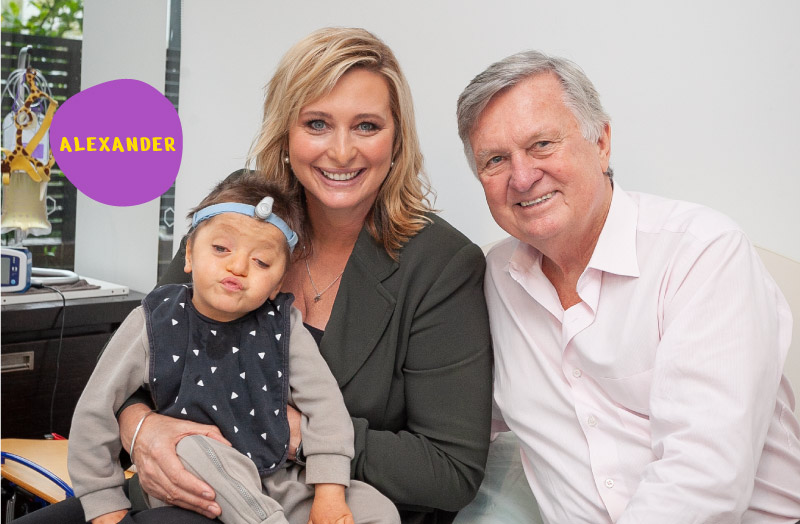I was 35 weeks pregnant with my first baby and, like all expectant mums, looking forward with joy and trepidation to the coming weeks and the birth of my much longed-for baby.
Although I was preparing to face motherhood as a single parent after separating from my husband, I was still so excited. I was in the throes of planning a home-birth when I went for my routine scan.
The first warning I got that day that something was wrong was when I was told my baby was measuring only the size of a 28-week-old baby and that a consultant would soon be in to talk to me. And that’s when my whole world changed.
The consultant said there was something very wrong with my baby and the prognosis was extremely poor. There followed many invasive tests and confronting conversations before I got sent home to ‘think about my options’ over the weekend.
I’m a documentary photographer, so to help me cope, I started capturing the days, using my craft to chronicle this life-changing journey.
I felt strongly I was already a parent and that I had a strong bond with this baby inside me, whatever the future held. But after a few days I got a feeling something was already wrong, as the baby had stopped moving. Instinct kicked in. I drove myself to the hospital, calling the midwife to meet me there.
Rushed in for an emergency caesarean, Alexander was born weighing just 1.6 kg. He was tiny and silent. And before he was rushed off to the Neonatal Intensive Care Unit (NICU), I was told he probably wouldn’t survive for very long.
Alexander was transferred to the Grace Centre for Newborn Intensive Care at The Children’s Hospital at Westmead, where he was diagnosed with a brain malformation. The back of his brain hadn’t developed properly, impacting his vision, hearing and physical development. Later, he was diagnosed with a very rare disorder called Joubert Syndrome.
The Grace Centre was our home for the next 5 and a half months. Here, we faced many touch and go moments, as Alexander was extremely prone to winter bugs and viruses. I can’t describe the anxiety. Most days I would wonder if it would be my last day with Alexander. I therefore documented every moment I could, creating a physical memory bank of photographs.
I spent my days in the NICU, preparing questions for the doctors on their medical rounds while he lay on my chest, and I could feel his little heart beating. At night I tried to sleep in my tiny hostel room one floor below the NICU in between researching what the future might hold for Alexander.
Hooked up to a range of machines and monitored constantly, Alexander clung to life. Because Joubert Syndrome is so rare, I got met with a range of answers to my questions as doctors did their best to treat him on a day-by-day basis. I was told he might be bad at maths, or that he could be in a wheelchair, deaf with severe disabilities.
Gently encouraged by the medical team to take Alexander to a children’s hospice for end-of-life care, I resisted. I wanted Alexander to come home with me to see if we could have some more time together and maybe even establish a life for us both.
Alexander was extremely lucky to have been born in Australia. He had access to the very best medical care, resources and opportunities provided by the Grace Centre and their amazing team.
So Alexander came home, and my vertical learning curve on how to care for him started. He relies on a BiPAP machine and oxygen to breath properly while sleeping, and feeding tubes to get the right sustenance levels. We had late-night ambulance trips, many, many surgeries and hospitalisations, nights in Intensive Care, and dozens of follow-up appointments.

Alexander, Johanna Griggs and Paul Francis
Alexander is now 7 years old. My memory bank and photographs of my time with Alexander now includes not just the inside of hospitals but trips to America and Mexico, camping, play dates and even starting school, and – yes – being locked down and home schooled during COVID-19.
I’ve had my own health issues, so Alexander did go to Bear Cottage, the children’s hospice, for respite care, where they were absolutely amazing.
We continue to roll with the punches, find silver linings and live in the moment. I try to love Alexander for who he is, not as his carer but simply as his mum. Alexander is a living example of being so much more than the sum of his parts. And yes – I’m still taking pictures and recording our life together, hopeful that they might help other parents starting out on their difficult journey.
Jennifer’s journey has become a documentary film. You can find out more through Jennifer's website:
View website
By Jennifer Brenkin